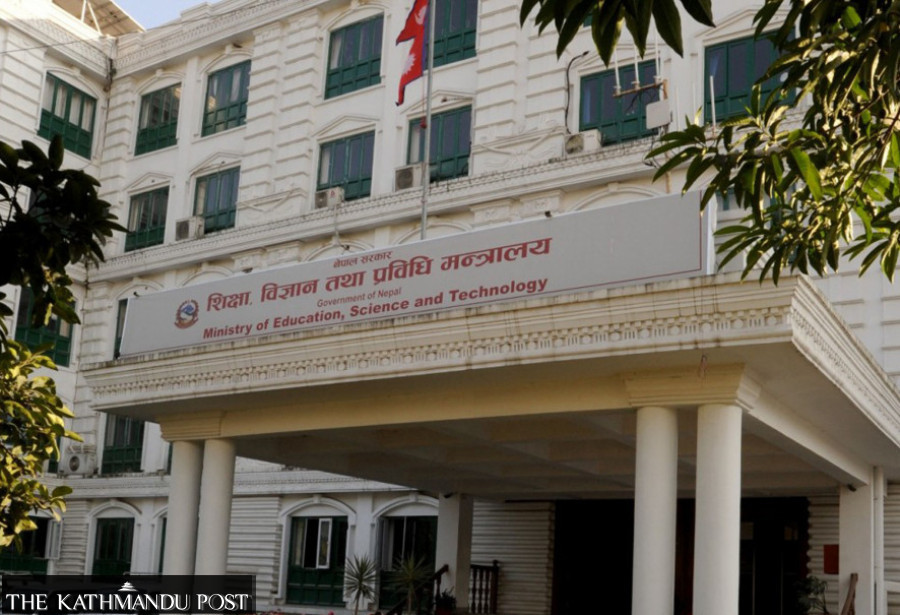National
Ministry unveils blueprint to ensure free education
An extra Rs222.91 billion is needed to give every child free, compulsory education, and to hire 50,000 more teachers.
Binod Ghimire
The government needs to more than double the existing education budget to ensure the children's constitutional rights for compulsory and free education.
Making public a draft of the Compulsory and Free Education Implementation Work Plan, the Ministry of Education, Science and Technology said an additional Rs222.91 billion budget will be necessary to bring all children into the school system and provide them with free and compulsory education.
The total education budget for the current fiscal year stands at Rs203.66 billion. Similarly, the ministry also projects the need for an additional 50,000 teachers, which will require an extra Rs25 billion.
Currently, there are 110,000 permanent teachers positions across the country, but 191,000 are serving under various categories, including those recruited under relief and temporary quotas. The 2015 Constitution of Nepal envisions compulsory and free school education.
Article 31 (2) of the constitution says every citizen shall have the right to get compulsory and free education up to the basic level (up to grade eight) and free education up to the secondary level from the state (up to grade 12). The Act Relating to Compulsory and Free Education promulgated in 2018 and its regulations issued two years later envision the implementation of the constitutional provisions.
However, successive governments have not allocated the needed budget to implement the constitutional provisions. As a result, hundreds of thousands of children remain deprived of their right to education.
The country has 4,511,230 children from the basic education age group (5–12) according to the latest national census. Three percent of them—2,12,072—are still out of the school system.
Appearing before the Education, Health and Information Technology Committee of the House of Representatives, Bidya Bhattarai, the minister for education, science and technology, had said the constitutional provisions had not been implemented because of a lack of the work plan. As assured at the parliamentary committee, the ministry has made the work plan ready; it will be finalised after discussions with the stakeholders.
The work plan outlines several actions to be executed before fully implementing the compulsory and free education plan. It envisions defining the jurisdiction of the three tiers of government in implementing free and compulsory education plans. Collecting information about children in every local unit, school mapping, determining school catchment areas and making arrangements for alternative education are some of the actions envisioned by the work plan.
Similarly, preparing curriculums at the local and school level, launching special campaigns to enroll children, and conducting literacy drives are other actions included in the work plan. Deadlines have been set for each of the actions.
According to the Act, from April 2028 onwards (Nepali New Year 2085 BS), anyone without basic education is ineligible for government or non-government jobs; elections or nominations to organisations and management committees. It is therefore necessary for a full-fledged implementation of the compulsory and basic education provisions before April 2028.
Although the government came out with a budget estimation now, a similar study had been conducted by researcher Binay Kumar Kusiyait, professor at Tribhuvan University, for the National Campaign for Education Nepal, an umbrella body of over four hundred non-governmental agencies working in the education sector, in 2018. This research showed that Rs197.84 billion is needed annually to ensure constitutional rights in the school sector.
Currently, the government covers costs for teachers, textbooks and some scholarships for marginalised communities. To fully meet constitutional requirements, the government would need to provide stationery, insurance, uniform and even a meal for free for students. According to Kusiyait’s report, the per student cost needs to be increased to Rs32,400 annually, up from Rs9,839 in 2018.




 19.57°C Kathmandu
19.57°C Kathmandu















